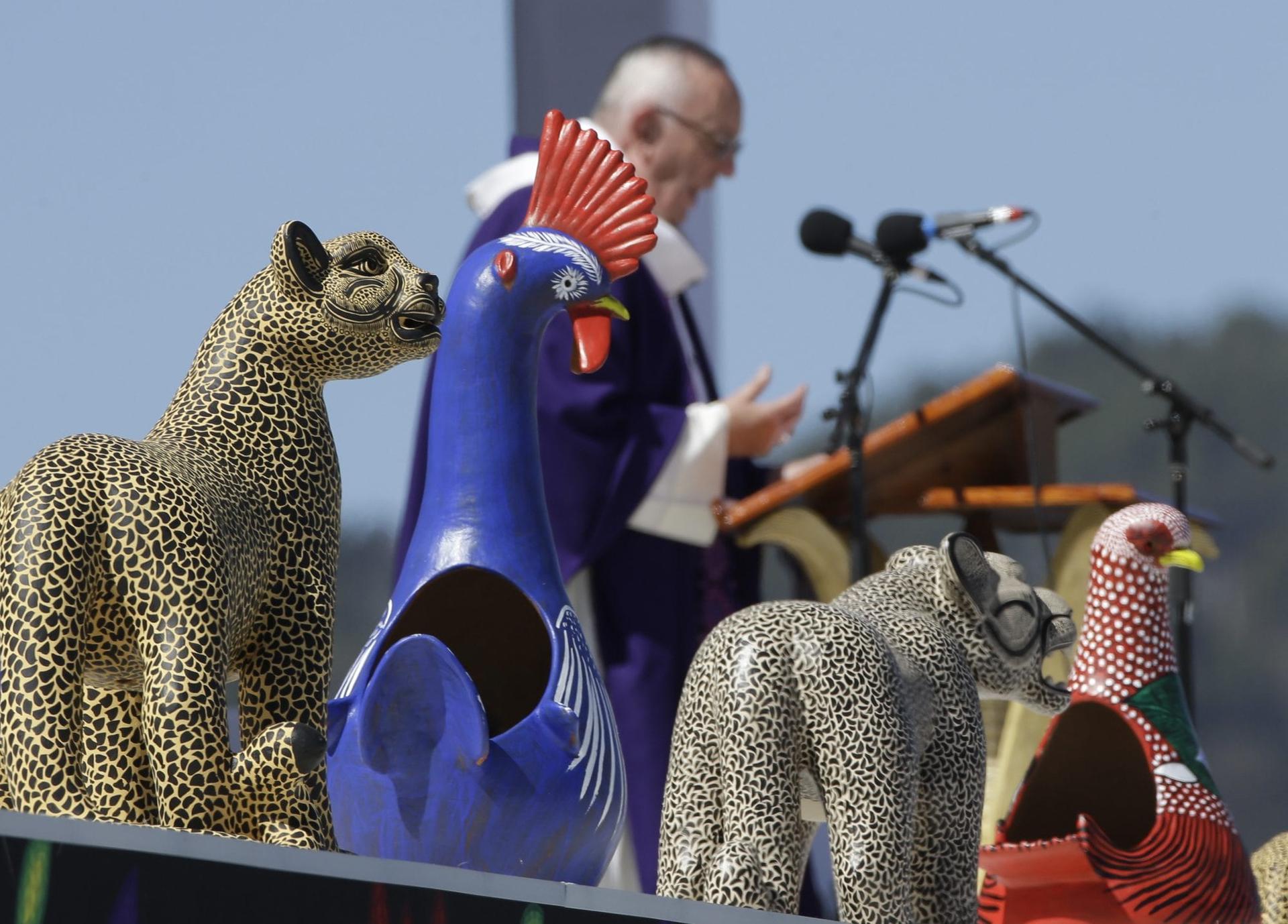Like many people, I went back home to the Midwest to visit my parents over the Thanksgiving holiday. As I got into the pew for the Saturday vigil mass, I noticed something I’ve never seen at Mass before: a service dog.
Given the number of people coming home from war who connect with animal companions, I wondered if this dog was helping the human person in front of me live with PTSD. During the Mass, I began thinking about non-human animals praising God and their place in church.
Then on Monday, I got a coincidental e-mail from my Fordham colleague Tom Beaudoin on this very topic. He uses my book For Love of Animals in his “Theology of Ministry” graduate course, and the book apparently prompted his students also to think about whether non-human animals belong in church.
One of the priests in his class put it this way:
“On the feast of St. Francis of Assisi, who is the patron of my parish, I exhorted the people not to limit the request for the blessing of animals to the feast day, but to feel free to ask for prayers for animals when they are sick and occasionally ask for blessings for their animals just like we do for ourselves.
“Sometimes when I bring Holy Communion to the homebound, some of them ask for blessings also for their animals, and I see this as the effect of talking about it in the church…Surprisingly, recently a bride asked me if her two well trained dogs can be ring bearers for her wedding in the church and I said no, because it was a nuptial Mass and it is in the church, I reasoned with her that if it was a ceremony outside the church, I will be open to it.”
Many different kinds of people with whom I discussed the matter were similarly skeptical. But, when pressed, few good reasons for this skepticism were forthcoming.
There is apparently nothing in Canon Law against it. We already have animals in church when, especially on the feast of St. Francis, they receive blessings from a priest. (Check out this link for some wonderful photos of pets on the day they get to be splashed with Holy Water.)
It may be a peculiarly Western (and/or elitist) thing to keep non-human animals out of mass. When I posed this question on my Facebook wall, one of the first responders pointed out I must have “never been to mass in rural Latin America” where dogs come in and out of Mass as a matter of course.
Another commenter pointed out that, in the Philippines, “it is routine to have stray cats, stay dogs, stray roosters, and stray pigs go through the many chapels and churches in Manila. Never a problem.”
And even in Western, elitist parishes, we apparently have no problem with service animals at Mass. Who, after all, would deny a blind person their seeing-eye dog? Or a combat veteran the animal companion which makes it possible to come to mass without having a nervous breakdown?
And if we are OK with these situations, what is the rationale for limiting it to such cases? One of my favorite news stories of all time was about dog who, clearly mourning the death of his human companion (a fallen Navy SEAL), dramatically laid out in front of the casket at the funeral service.
Could we really deny a family who wanted to let their dog mourn with them at a funeral Mass? And, if not, could we deny the family mentioned in the e-mail above the chance to celebrate with them at a wedding Mass?
Another e-mailer from Beaudoin’s class worried that this might be a slippery slope.
“I guess what most of us in parish ministry are afraid of is setting a precedent that we cannot control when it gets out of hand,” this person wrote. “Sure, exceptions can always be made because, after all, Roman law is built on dispensations. Funerals and weddings are good examples because they are ‘exclusive’ celebrations which are not necessarily open to the general public.”
This seems sensible, but should we really keep all non-human animals from all public Masses?
In our culture today, many non-human animals are considered genuine members of the family. Especially for single adults and couples without children, their pets are the only children they have. Many boys and girls have grown up with pets as something like fellow siblings. Should such families be denied the chance to bring their non-human members to mass?
There are some worries to consider.
If they are not well-trained, animals could be a distraction for those praying. (Their lack of training might also result in, um, various messes being left in church for others to find.) In addition, many people with profound pet allergies may not want to be at mass with non-human animals.
While these are real problems, solutions seem within reach. Companion animals could be confined to a certain part of the church. They could also be limited to one designated mass. Those with allergies could then avoid the masses and parts of the church designated for animal companions.
In terms of behavior, perhaps every pet permitted in a church would either have to be formally trained as a service animal or receive other training such that they could be permitted in Church. (Interestingly, a group of monks actually provides training that might be appropriate.)
At any rate, especially as pets become more and more integrated into families, parishes who serve such families ought to be finding a way to make room for non-human animals.
In the words of the Psalmist, “Let everything that has breath praise the Lord!”
Charles C. Camosy is Associate Professor of Theological and Social Ethics at Fordham University and is author of For Love of Animals: Christian Ethics, Consistent Action.


















